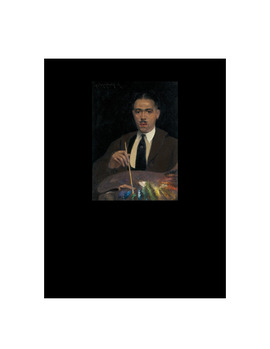| dc.contributor.author | Romines, Blake | en_US |
| dc.contributor.editor | 2015-04-01 | en_US |
| dc.contributor.editor | OU historical journal ; 4 (Spring 2015) | en_US |
| dc.contributor.editor | Capps, Sarah | en_US |
| dc.contributor.editor | Collins, Adriana | en_US |
| dc.contributor.editor | Dixon, Arthur | en_US |
| dc.contributor.editor | McCullough, Morgan | en_US |
| dc.contributor.editor | Miles, Sarah | en_US |
| dc.contributor.editor | Robertson, Terrence | en_US |
| dc.contributor.editor | Rodríguez, Monique | en_US |
| dc.contributor.editor | Romines, Richard | en_US |
| dc.contributor.editor | Scheller, Austin | en_US |
| dc.date.accessioned | 2016-11-15T21:56:14Z | |
| dc.date.accessioned | 2021-04-14T15:12:49Z | |
| dc.date.available | 2016-11-15T21:56:14Z | |
| dc.date.available | 2021-04-14T15:12:49Z | |
| dc.date.issued | He has fewer illusions about the world.” Schuyler looked forward to the future by looking back into the past, that is, the not too distant past"ting in 1938, two years after Fascist Italy conquered Ethiopia, the eminent African American intellectual and columnist George S. Schuyler proclaimed the Rise of the Black In | en_US |
| dc.identifier.uri | https://hdl.handle.net/11244.46/1233 | |
| dc.description | He has fewer illusions about the world.” Schuyler looked forward to the future by looking back into the past, that is, the not too distant past. Three years before writing this particular article, in October 1935, Italy invaded Ethiopia, the last independent nation of Africa. While the world powers watched, African Americans united behind the cause of Ethiopia. African Americans formed committees, filled newly created political and diplomatic spaces with nascent leaders, opened up grass roots fundraising, and thus, in a sense, became aware of their political and social power, aware of their place in world society. Furthermore, Schuyler wrote that the new Negro “believes that to combat this white internationale of oppression a black internationale of liberation is necessary… He [the new negro] sees and welcomes a community of interest of all colored peoples.”"riting in 1938, two years after Fascist Italy conquered Ethiopia, the eminent African American intellectual and columnist George S. Schuyler proclaimed the Rise of the Black Internationale. Having faced the travails of white imperialism for over a century, Schuyler wrote of a new Negro, a more informed Negro, that is “no longer blindly worshipful of his rulers… | en_US |
| dc.description.abstract | Writing in 1938, two years after Fascist Italy conquered Ethiopia, the eminent African American intellectual and columnist George S. Schuyler proclaimed the Rise of the Black Internationale. Having faced the travails of white imperialism for over a century, Schuyler wrote of a new Negro, a more informed Negro, that is “no longer blindly worshipful of his rulers… | en_US |
| dc.description.uri | He has fewer illusions about the world.” Schuyler looked forward to the future by looking back into the past, that is, the not too distant past. Three years before writing this particular article, in October 1935, Italy invaded Ethiopia, the last independent nation of Africa. While the world powers watched, African Americans united behind the cause of Ethiopia. African Americans formed committees, filled newly created political and diplomatic spaces with nascent leaders, opened up grass roots fundrais"iting in 1938, two years after Fascist Italy conquered Ethiopia, the eminent African American intellectual and columnist George S. Schuyler proclaimed the Rise of the Black Internationale. Having faced the travails of white imperialism for over a century, Schuyler wrote of a new Negro, a more informed Negro, that is “no longer blindly worshipful of his rulers… | en_US |
| dc.relation.ispartofseries | Honorable Mention for the Griswold Prize for Excellence in Undergraduate Historical Scholarship | en_US |
| dc.relation.ispartofseries | http://history.ou.edu/journal-2015 | en_US |
| dc.title | Out of the Ashes: African American Responses to the Second Italo-Ethiopian War | en_US |
| dc.description.undergraduate | undergraduate | |
